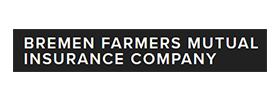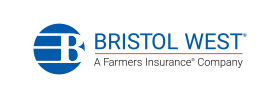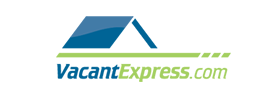We’ve all occasionally driven other people’s cars, whether because ours was in the shop awaiting repairs or because we’re visiting another state or even country. You might not have thought too much about it. After all, you have insurance. Isn’t that good enough? But does auto insurance follow the car, or does it follow the person?
In a nutshell: car insurance coverage technically follows the car and not the person, but there are exceptions to this rule, including the state where you live, who’s listed as a driver on your policy, and the kind of endorsements you have.
Is there such a thing as “driver insurance?”
You can be listed on others’ insurance policies as an occasional driver, but there’s technically no such thing as driver insurance. There is also non-owner car insurance for those who don’t own vehicles at all but may regularly borrow/rent them, which can help to satisfy a SR-22 (or FR-44) form. You may also be able to purchase endorsements that will cover you while using rental vehicles or borrowing friends’ vehicles, but that’s limited in duration and applies situationally. Adding endorsements will also increase your car insurance premiums.
Friends and extended family members who don’t have vehicles but might want to take your vehicle out for a spin sporadically can be covered under your policy, but we recommend informing your agent or insurer of this first. They are unlikely to be covered if they were to get into an accident unless they’re included in your policy’s terms, but be mindful of the fact that their actions may impact your insurance.
What is non-owner car insurance?
If you don’t own a car but frequently need to rent cars or borrow the cars of others, you can purchase a liability policy separately known as non-owner car insurance. It’s also helpful if you ever need to show proof of car insurance.
Non-owned car insurance, depending on the state, can include liability coverage as well as other required options, like uninsured motorist or medical payments coverage. Each state has its own requirements for minimum auto insurance (except for the few states that don’t require insurance), and each car must be insured adequately to satisfy the law. The primary focus of non-owned coverage is on liability insurance.
Only one person may be listed on a non-owner car insurance policy. Some companies will apply coverage to a spouse, but many don’t include this option.
Non-owner car insurance offers coverage if you get into an accident in a borrowed vehicle and helps to pay for the damages/injuries of others via the liability coverage provided by the policy. Keep in mind that non-owner car insurance is secondary to any existing coverage on the policy, so if you got into an accident with a friend’s car while having this insurance, and that friend had bodily injury limits of $15,000 but the accident capped out at $30,000 in medical bills, there’d be an outstanding $15,000 to pay. Non-owner car insurance could help cover the remaining amount. In short, non-owner car insurance covers:
- Bodily injury and medical expenses caused while driving a vehicle owned by someone else
- Property damages caused while driving a vehicle owned by someone else
- Legal defense if you are sued for causing an accident in a car owned by someone else
Non-owned car insurance won’t cover damages to the car you’re driving, any injuries you sustain, any injuries sustained by other passengers, business driving, or personal belongings. In fact, that car won’t be covered at all for physical damages unless the registered owner already has a full coverage car policy; non-owned car insurance shouldn’t be depended on to provide protection that doesn’t already exist with the vehicle’s main policy.
Who needs non-owned car insurance?
Here are some reasons why someone might choose to purchase non-owned car insurance:
- You frequently use car-sharing services. Companies that offer these services, like Zipcar, usually have their own insurance but non-owned car insurance may help in extending the otherwise limited options that the companies provide.
- You want to avoid having a gap in your car insurance.
- You frequently rent vehicles while abroad or travelling, or just in general.
- You’re faced with a state law to file an SR-22 or FR-44 form (which requires you to show proof of car insurance if you’ve ever had a DUI conviction, been caught driving without insurance, license suspension or revocation, etc.) This way you can get auto insurance and show proof of insurance without needing to own a car.
Will my auto insurance cover me if I’m driving another vehicle?
This goes back to the question of, “does auto insurance follow the car or the person?” The short answer is technically no, but if you are listed on the policy of that other vehicle, then you would be covered. It wouldn’t be your auto insurance per se, but you would be covered.
With some insurers, they’ll accept others driving your car as “being covered” assuming that there’s a reasonable belief that you’d have had permission to drive the car. This goes for a lot of situations, such as the following:
- Borrowing a family member’s car while yours is in the shop for repairs
- Driving the vehicle of a parent with permission, assuming you haven’t been excluded from their car insurance policy
- Renting a car from a car rental company or car-sharing marketplace (with some exceptions)
With the above scenarios, your full insurance may not extend to these borrowed/rented vehicles. Generally, all you’ll have is liability coverage, but your comprehensive/collision coverage likely won’t apply. With certain car rental companies or agencies, you’ll often be asked to purchase the insurance that they offer to ensure that their asset and investment is fully protected.
Get unique coverage solutions with AHI Group
Don’t own a car but drive and rent others’ cars often? Own your own car but frequently use rentals when you travel? Lend your car to a friend? Whatever your unique situation is, AHI is happy to discuss your coverage needs with you and find a policy suited to how you drive. Give us a call today.



























